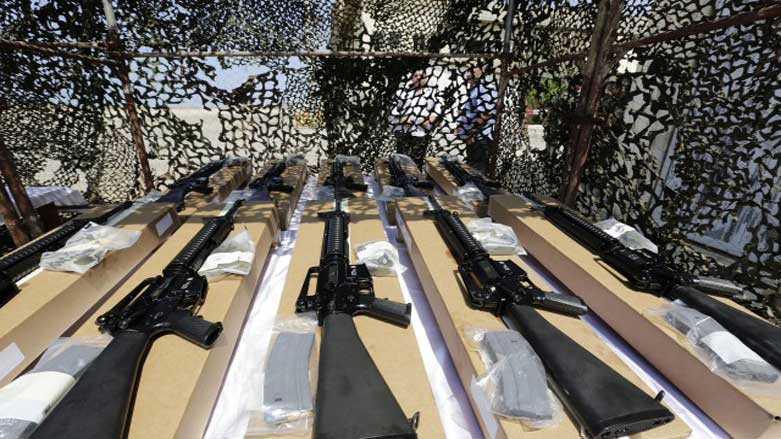US failed to monitor over $1B in weapons, equipment transfers in Iraq

ERBIL, Kurdistan Region (Kurdistan24) – Amnesty International on Wednesday released a government audit from 2016 which shows the US Army failed to properly keep track of military equipment which was sent to Iraq and Kuwait.
The total costs of the equipment sent to arm the Iraqi Army, Shia militias, and the Kurdish Peshmerga exceeded USD $1 billion.
“Sending millions of dollars’ worth of arms into a black hole and hoping for the best is not a viable counter-terrorism strategy,” said Patrick Wilcken, Amnesty’s Arms Control and Human Rights researcher.
The military equipment transfers were part of the 2015 Iraq Train and Equip Fund, a program aimed at helping Iraqi forces combat the rise of the Islamic State (IS).
The equipment included hundreds of Humvees, tens of thousands of rifles, and other military gear.
The document revealed the Department of Defense “did not have accurate, up-to-date records on the quantity and location” of a vast amount of the provisions sent to the Iraqi Army.
Improper record-keeping, duplicated spreadsheets, handwritten receipts, and a lack of a central database to track the transfers were factors mentioned in the audit.
However, the audit claimed that under the program, once the equipment was in the hands of the government of Iraq, the Pentagon was no longer required to monitor the transfers.
“This audit provides a worrying insight into the US Army’s flawed—and potentially dangerous—system for controlling millions of dollars’ worth of arms transfers to a hugely volatile region,” Wilcken said.
“The need for post-delivery checks is vital,” he added.
“Any fragilities along the transfer chain greatly increase the risks of weapons going astray in a region where armed groups have wrought havoc and caused immense human suffering,” Wilcken concluded.
Editing by Karzan Sulaivany
